Students at the Center Newsletter – January 2014
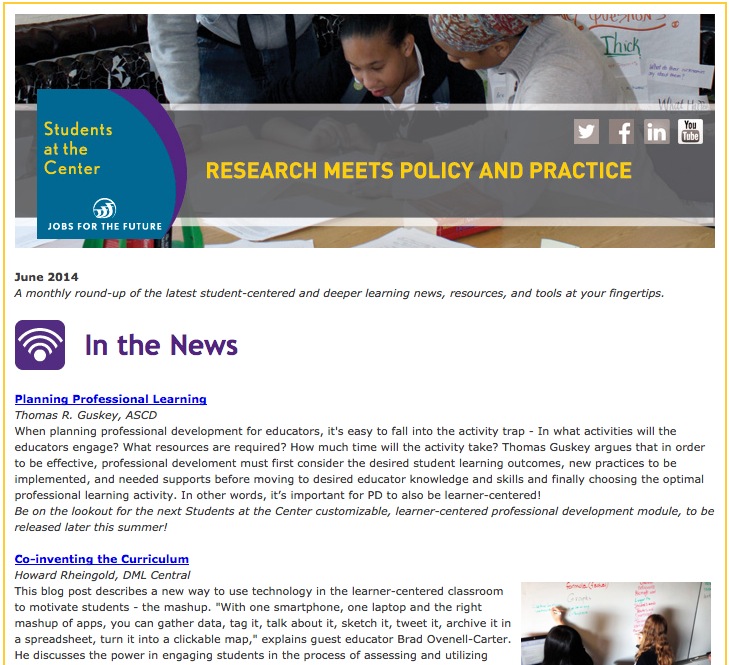
View the January, 2014 newsletter for the latest publications, articles, tools, and announcements from Students at the Center! Subscribe to the Students at the Center Mailing List
What Parents Want: Education Preferences and Trade-offs
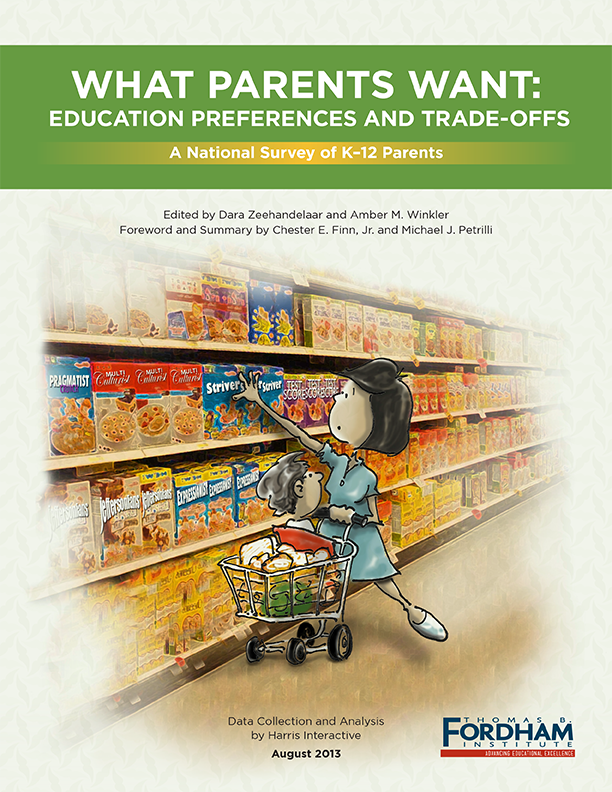
This groundbreaking study finds that nearly all parents seek schools with a solid core curriculum in reading and math, an emphasis on science, technology, engineering, and math (STEM) education, and the development in students of good study habits, strong critical thinking skills, and excellent verbal and written communication skills. But some parents also prefer specializations… Read More ›
Neuroeducation: 25 Findings Over 25 Years
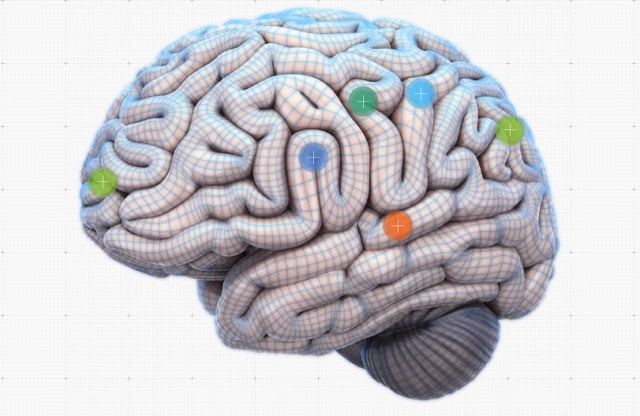
informED celebrates the 25th anniversary of the emergence of the field of neuroeducation with a list of the most significant findings in neuroscience education of the past 25 years. Be sure to check out the interactive learning strategies 3D brain map and the related Students at the Center Brainy Approaches to Learning infographic. Read Neuroeducation:… Read More ›
Of Executive Functions and Postsecondary Success
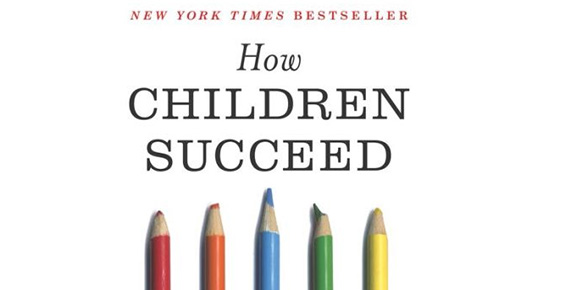
Paul Tough’s new book, How Children Succeed: Grit, Curiosity, and the Hidden Power of Character, is about the importance of character in preparing students for success in education, employment, and life. Specifically, he describes the critical role of developing executive functions for young people to succeed in college. Executive functions, according to Mr. Tough, combine… Read More ›
Students at the Center Newsletter – December 2013
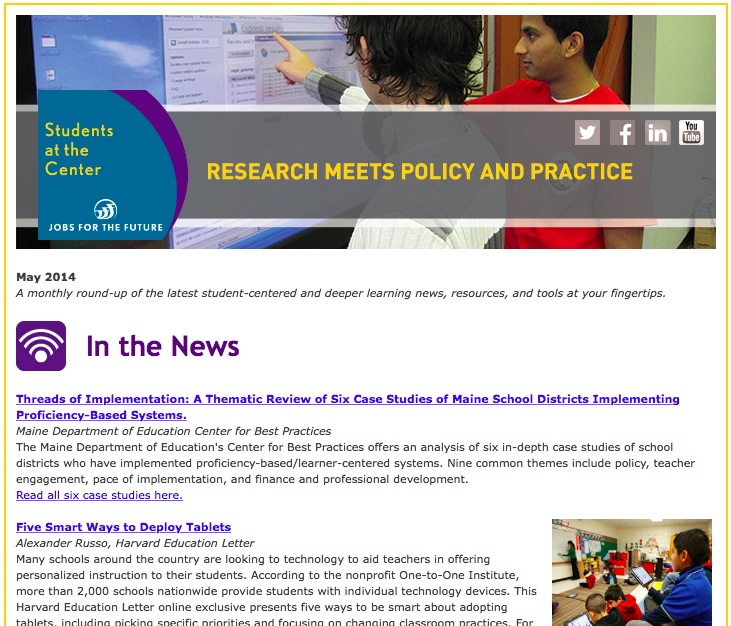
View the December, 2013 newsletter for the latest publications, articles, tools, and event announcements from Students at the Center! Subscribe to the Students at the Center Mailing List Visit the Resource →
Personalization in Schools: Annotated Bibliography
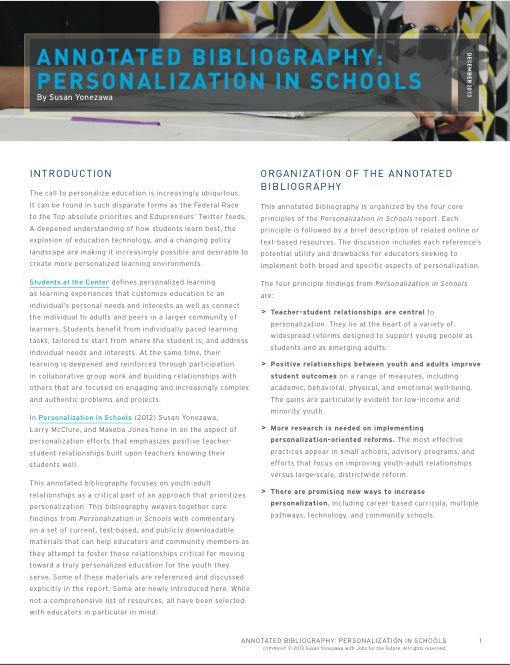
Students at the Center defines personalized learning as learning experiences that customize education to an individual’s personal needs and interests as well as connect the individual to adults and peers in a larger community of learners. In Personalization in Schools (2012) Susan Yonezawa, Larry McClure, and Makeba Jones hone in on the aspect of personalization… Read More ›
The Condition of STEM 2013
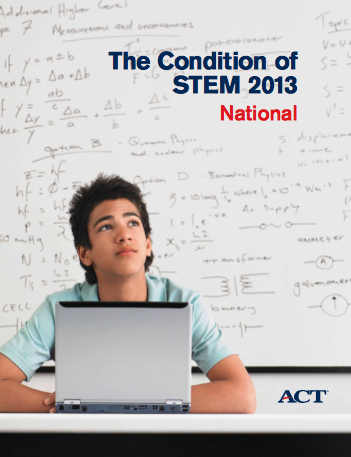
This report by the ACT Foundation includes information specific to STEM-related fields for the graduating class of 2013 that took the ACT test. Test data provides research on students’ interest in STEM careers, and math and science readiness. The report is broken into four main areas: science, computer science and mathematics, medical and health, and engineering and technology. The authors… Read More ›
Students at the Center Newsletter – November 2013

View the November 2013 newsletter for the latest publications, articles, tools, and event announcements from Students at the Center! Subscribe to the Students at the Center Mailing List Visit the Resource →
Students at the Center Newsletter – October 2013
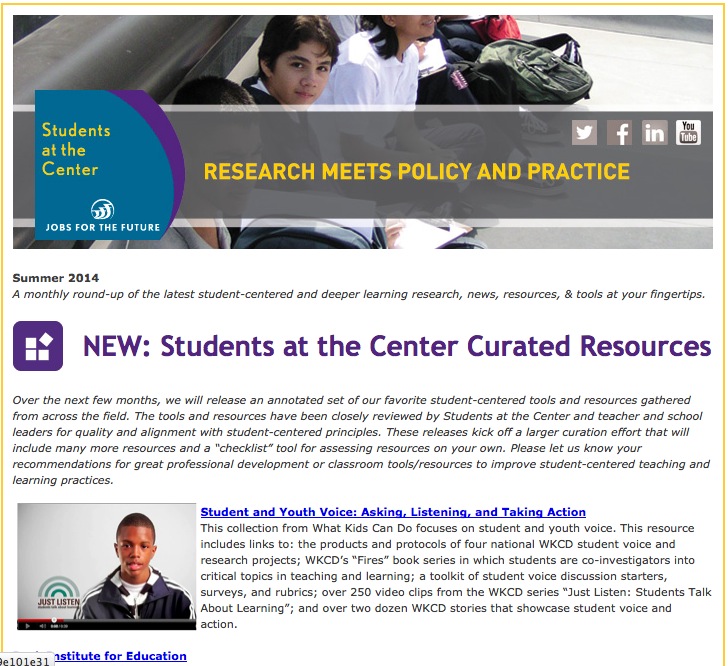
View the October, 2013 newsletter for the latest publications, articles, tools, and event announcements from Students at the Center! Subscribe to the Students at the Center Mailing List Visit the Resource →
Students at the Center Newsletter- September 2013

Welcome back to school! In this issue, we’re excited to release four new Students at the Center videos that offer an introduction to student-centered self- and peer assessment (along with a companion blog post). In addition, we bring you a report of student-centered approaches to learning in action, an introduction to deeper learning, and seven… Read More ›
Students at the Center Newsletter – July/August 2013

Research supporting student-centered approaches to learning continues to mount, deepening interest and excitement from both educators and policymakers. This month we bring you studies pointing to the importance of motivation, engagement, and student voice in education and reinforcing the need for culturally contextualized curricula. We also offer a forecast on the future of learning and… Read More ›
The Brain Science Behind Learning
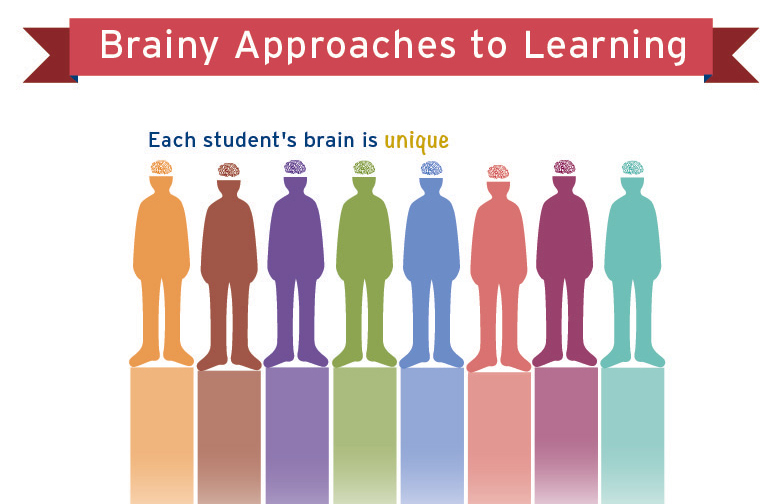
This commentary delves deeper into the principles behind Students at the Center’s Brainy Approaches to Learning infographic and explains how the brain science behind learning supports the concept of personalized learning. The infographic illustrates research from the report Mind, Brain, and Education that answers the questions: What does brain research tell us about how we… Read More ›